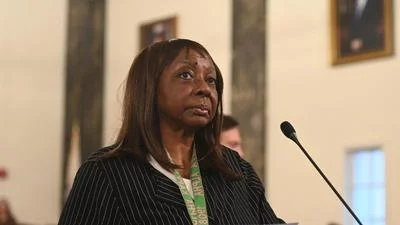Rob Karr, Illinois Retail Merchants Association president
Rob Karr, Illinois Retail Merchants Association president
Rob Karr says Cook County officials were warned that a soda tax and the federal government's food stamps program wouldn't mix.
Cook County rolled out a 1-cent-per-ounce sweetened beverage tax on Aug. 1 and has since been told it stands to lose $87 million in Supplemental Nutrition Assistance Program (SNAP) benefits unless it can find a way around the fact that SNAP purchases do not incur taxes.
“IRMA told them months prior,” Karr, the president of the Illinois Retail Merchants Association, tweeted. "USDA letter told them prior. Called due diligence. If worked 'cooperatively,' wouldn't have these problems.”
.jpg)
Up until now, retailers have been allowed to tax such purchases and make refunds until point-of-sale systems have been sufficiently updated. But Karr says that such a move probably means the county's troubles are only beginning.
“The $86.8 million is just from the administrative fund,” he told the Chicago City Wire. “In the end, we’re really talking about at least $200 million that could be lost for the county.”
According to the Chicago Tribune, Illinois Human Services Secretary James Dimas told Cook County Board President Toni Preckwinkle that refunding the taxes to SNAP recipients is against the law.
"It is (Food and Nutrition Services') strict interpretation that retailers may not charge the tax to SNAP recipients at any time and that providing an immediate subsequent refund at a customer service desk does not cure the problem or the violation of the law," Dimas wrote in a memo, according to the paper.
Karr said that leaves county officials with plenty of work to do to in order to remedy the situation.
“They have to respond to the agency within a few days and let them know how they plan to get this fixed,” he said. “I don’t know why they would ever go forward with this when there was still so much about it up in the air.”
While the county government might be able to find an out, Karr laments the fact that county store owners can expect to see more of what is quickly becoming a common sight.
“You’re already seeing businesses across the border advertising they don’t have the tax and they’re open for business,” he said. “Meanwhile, stores in Cook County are reporting sales are already significantly down.”
IRMA filed a lawsuit challenging the constitutional legality of the tax and was granted a temporary restraining order, which delayed the law by a month. Cook County Judge Daniel Kubisiak dismissed the initial filing in late July, but Karr said the organization is now going through the appeal process.






 Alerts Sign-up
Alerts Sign-up